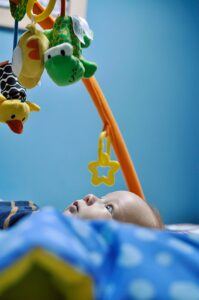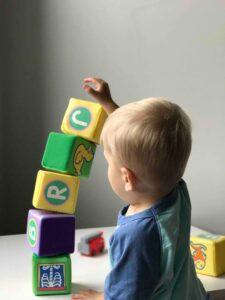Parents and families are happy when children are learning and playing well. Early learning experiences are critical for child development and the learning of cognitive and other skills for children’s early STEM awareness. Science, Technology, Engineering and Mathematics (STEM) must be introduced early for children to have interest and appreciation for learning.
Not all children begin life on equal footing. While this is so, parents and families can provide the best support for learning and development to ensure their children have positive outcomes in STEM. Autism spectrum disorder (ASD) is a known developmental disability affecting children. Parents of children with autism may feel overwhelmed and may want to believe their children might not be ready for a STEM society. This post offers information and support for such families in aiding them in building STEM awareness for their children.
Autism Spectrum Disorder (ASD)
Children with autism spectrum disorder (ASD) tend to communicate, interact, behave and learn in ways different from most other children. Based on the child’s diagnosis, there can be few or several conditions hence spectrum disorder. Autism spectrum disorder (ASD) is diagnosed in children of all ethnic, racial and social status. However, the prevalence is four times more common among boys than girls. Learning, thinking, evaluating, problem solving skills salient for early STEM can range from gifted to severally challenged.
Children with ASD may also have different ways of paying attention, interacting with people and things. Signs and symptoms of ASD start in early childhood years. Parents and families must pay close attention to how children, communicate, interact, and learn during the first four years of life. Children should be taken to the doctor for routine checks in all areas of development. At about age 2 parents and or doctor can become concern if there are indicators relating to a child’s behavior and development .At about age 4 a diagnosis can be made.
Signs and Symptoms
Children ASD might:
- not display interest in or point to an object if you point to it
- have challenges relating to others or even show interest in them
- avoid eye contact and tend to want to be alone
- have challenges relating to and understanding other people’s feelings or their own feelings
- not want to be held or cuddled, or might prefer only when they want to
- seen unaware when people talk to them, however; might be responsive to other sounds
- be interested in people, however; have challenges to talk, play, or relate to them
- repeat or echo words or phrases in place of normal language
- have challenges expressing their needs using typical words or motions
- not play “pretend” games
- repeat actions several times
- have challenges adapting when the routine changes
- have unusual reactions to the way things smell, taste, look, feel, or sound
- lose skills they once had
How Research Guides our Action
There is currently no cure for autism spectrum disorder ( ASD). However, research shows that early intervention treatment services can help improve child development outcomes and build early learning skills. Early years research pin points the importance of a developmentally appropriate environment and positive interactions with adults and children. This is most recommended for children with autism as this provides the catalyst for building skills for STEM awareness.

Mali Desha
Another key research finding is the power of parental / family engagement in young children’s learning. Experts attest that, family engagement during the early years of life has a consistently positive effect on learning in all areas and the strongest relation is evident when engagement takes place outside of school. Therefore, the home is an important place for engagement and learning to take place. Positive results are shown regardless of race, social status and or parental education. The greater the parental involvement results in greater confidence and learning in children.

Jelleke Vanooteghem
Disclosure-This page has affiliate or referral links. As an Amazon Associate I earn from qualifying purchases. This means I receive a small commission if you decide to click through and buy anything. This is at no extra cost to you but helps me to maintain my website. The information in this post is based on research and my professional experience. I am not paid for my opinions, suggestions and or recommendations. I take the time to research resources and make them available to you. I never recommend poor-quality products or create false reviews for sales. You are free to make your own decisions when purchasing. Full Disclosure
Parental Engagement for Learning
Before we discuss this area you need to know that parents / families know their child best. Therefore, when engaging your child, you should take into consideration your family culture, your child’s preferences, learning style and recommendations from professionals. One other salient factor I have observed over the years is, parents gut feeling or intuition is very important. It is that belief in your child that says “yes you can“. Even in the face of adverse situations. The power to believe in your child and transfer that to him or her is very important for positive outcomes.

Ryan Fields
Play Therapy – involves a trusted relationship between the child and the adult. The adult must be authentic and committed to exploring the child’s world through play with the child. Equally, the adult should be patient and willing to give the child all opportunities during play to learn. The objective in play therapy therefore is, to assist the child to grow and develop skills for STEM learning and behavior modification. This ultimately leads to better self-regulation. Achieving positive results through this means, allow child to feel less anxious, develop predictable routines and aid the child to feel good about self.
Tools/ Resources for play- block play, puzzles, sensory toys, apps, reading to, talking to, engaging child in simple projects like gardening can assist parents in scaffolding their child with autism. Parents can take child to museum or other places to facilitate learning. However, this may have to take time for some children based on their reaction in new situations.
Here are some resources you can check out from this site to support STEM learning:
https://benefitsofastemeducation.com/top-5-stem-books-to-boost-your-childs-stem-awareness/
https://benefitsofastemeducation.com/10-best-apps-for-kids-stem-awareness-under-4-00/
https://benefitsofastemeducation.com/how-to-use-lego-to-build-stem-awareness/
Take-A-Ways
Parents and families of children with autism spectrum disorder need the support in assisting their children in learning and enjoying life to the fullest. As citizens of a STEM society these parents can engage their children to grow and develop skills for STEM learning and behavior modification. Recommended means include through play using resources such as block play, puzzles, sensory toys, apps, reading to, talking to, engaging child in simple projects .
Although children with autism display challenging behaviors and may have trouble communicating and interacting; parents do not need to feel bad about their children’s challenges. This post was intended to support parents and families to make the most out of parent -child interactions from an early age using developmental strategies guided by research.
Remember to keep believing in your child and transfer this positive energy. It works wonders! Celebrate the small and large achievements and always make decisions in the best interest of your child.
Please feel free to leave your ideas, comments, questions and or concerns here. I am more than happy to respond to you in a timely manner. Thank you for stopping by and do continue to support your children’s STEM fluency.
Tracy-Ann Morgan-Smith, PhD, JP


Hello Tracy-Ann, I really love the fact that you have taken the time to put up such an amazing article which will help a lot of people who are in care of kid(s) with autism do better and help with their safety actually. These kids are actually in need of so much care and should be taken good care of while we shield them from toys that can harm them and this is really helpful indeed
Thankyou for stopping by. It is so important for parents and families to understand and have the knowledge of care, stimulation and development. Such knowledge will lead to better outcomes for these children.
Not always so easy to be with a child that has autism but what we need to remember us that only we are able to help the kids get Better and it’s nice to be able to learn how to build a stem awareness for this children. I think at the end, we just want them to be alright and with the right awareness, that possibility is not far fetched.
Thank you for leaving your comments. You are so right in the end we want these children to make the best out of life.
Hello there! this is an amazing review you have got here. I am sure this quality information will be beneficial to anyone who come across it. I will have to save and share this post with a neighbor of mine who I think really needs it for her child’s autism development.
Thanks for sharing this with me.
Thank you for your comments. I am happy you are sharing this information with your neighbor. I do appreciate you making awareness a reality.